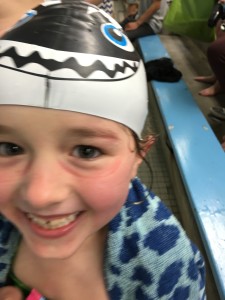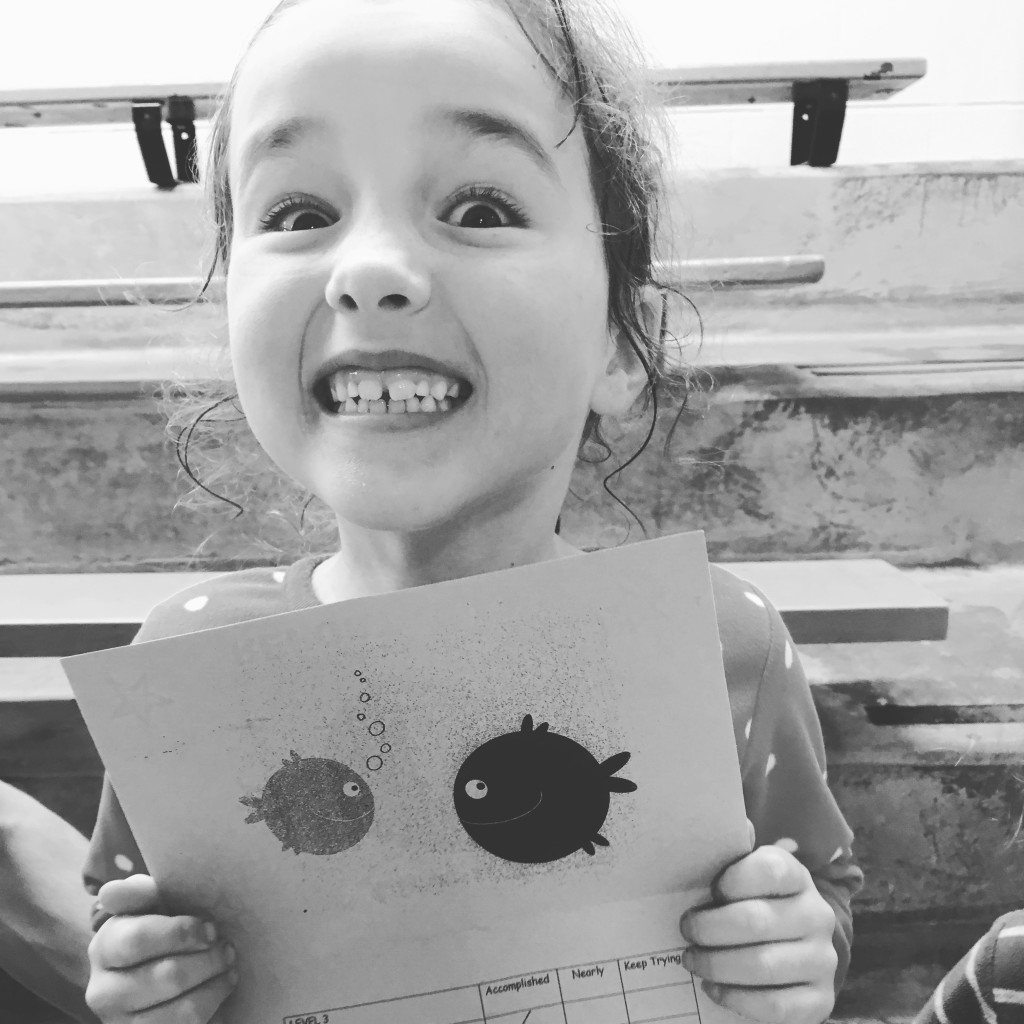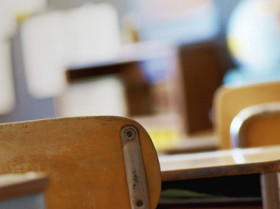A couple of years ago my partner (aka: MacGyver) and I beamed with pride when our oldest was told to skip level 1 at swimming lessons because she could already float on her own, among other things. We perhaps beamed even a little brighter when she accomplished all the required tasks for level 2 only weeks later and was told to move to level 3. And then came level 3 (insert suspenseful music)...
Since that time, it took 5 (maybe 6) sessions for our daughter to complete level 3. There are 10-12 lessons in each session. You can do the math, but it was a lot of lessons and sessions whereby she was told that she didn't demonstrate enough competence to proceed to level 4. The reasons are plentiful, and while some are related to her starting the level so young and needing to develop physically, others were related to her needing to learn how to give her best effort for 30 full minutes and to apply the skill cues taught.
Sidebar....
Some of you may be asking, why swimming? Well, we spend a lot of time near water and we both feel swimming is a necessary fundamental skill. Not only can swimming save her life, if she has competence in swimming, she may be more likely to sign up for a local triathlon when she's older - for example. The physical literacy journey can not be optimized without competence in confidence in a wide variety of environments - such as land, snow, ice and, yes, water. So, we try and ensure that our kids develop some level of competence in each environment so they will be more likely to tell us that, yes, they would like to come skating, swimming, etc. with us on the weekends when we ask them to do so.
Back to the level 3 saga...
A few weeks ago, her dad asked her if she would like some tips for her freestyle stroke. She replied, "That would be great!". FYI: We purposefully hold back giving too many tips given our sporting backgrounds and my profession as we fear it could turn her off sports and physical activity. Thus, our approach is to ask her if she would like feedback from us, which she actually loves receiving, so it's working out quite well. She applied what her dad told her and everything - finally - clicked.
Last night, after months (and months) of driving her to lessons, taking sessions off so she didn't get bored with swimming, and encouraging her to keep a good attitude, meet friends, and thank her coaches, she FINALLY saw all tasks marked accomplished on her report card. She is moving on to level 4!
Her elation when she read her report card is what prompted this blog post. I never saw her so happy. Not even on Christmas Morning. Not even when we took home our rescue pups, Bill and Ted - who she longed for. For the first time in her young life, our daughter experienced how total commitment, persistence, and a good attitude can result in a sense of accomplishment one can't get otherwise. Money can't buy this sense of accomplishments, and parents can't gift it to their kids - directly, that is. It was an awesome reminder for us, as parents, to remember that these are the experiences we need to try and support our kids with. The goal shouldn't be that our kids make a certain team or participate at a certain level, but that they learn how to strive toward short-term goals as part of their longer-term physical literacy journey. I told her that she just felt the same way her daddy did when he became a D1
I told her that she just felt the same way her daddy did when he became a D1 All-American, and the way mommy did when I qualified for the Boston Marathon. I told her that she is an athlete because she knows that the best feelings are felt when she gives her best effort and sticks with a goal - even when the times get tough. She responded, "I get it mom, and I think we need to be proud of dad, too. His tips really worked!" (my heart damn well melted then and there - but you can be sure I reminded her who signs her up for the lessons each time and handles that paper work!) ha!
Of course, given my line of work, I am now left with mixed feelings. While so happy for my family's experience last night, I find myself unsettled. So many children and youth miss out on developing skills from experiences such as this because they can't afford swimming lessons, or their parents' work schedules don't accommodate the times the lessons are offered. It left me wondering where the children and youth who need access to adapted or para swimming go to develop their swimming competence. It leaves me rather emotional and motivated to continue my work in shifting current physical inactive norms. Every child - not just those who live in a certain neighborhood - deserve to gain valuable life skills through physically active experiences in sport and physical activity. Their future, and the future of society, depends on it. It's time every parent - not just those who live in poverty or who parent children with disabilities, should do his/her part to change current inactivity norms.







Pingback: The PE Playbook – May 2016 Edition – drowningintheshallow()